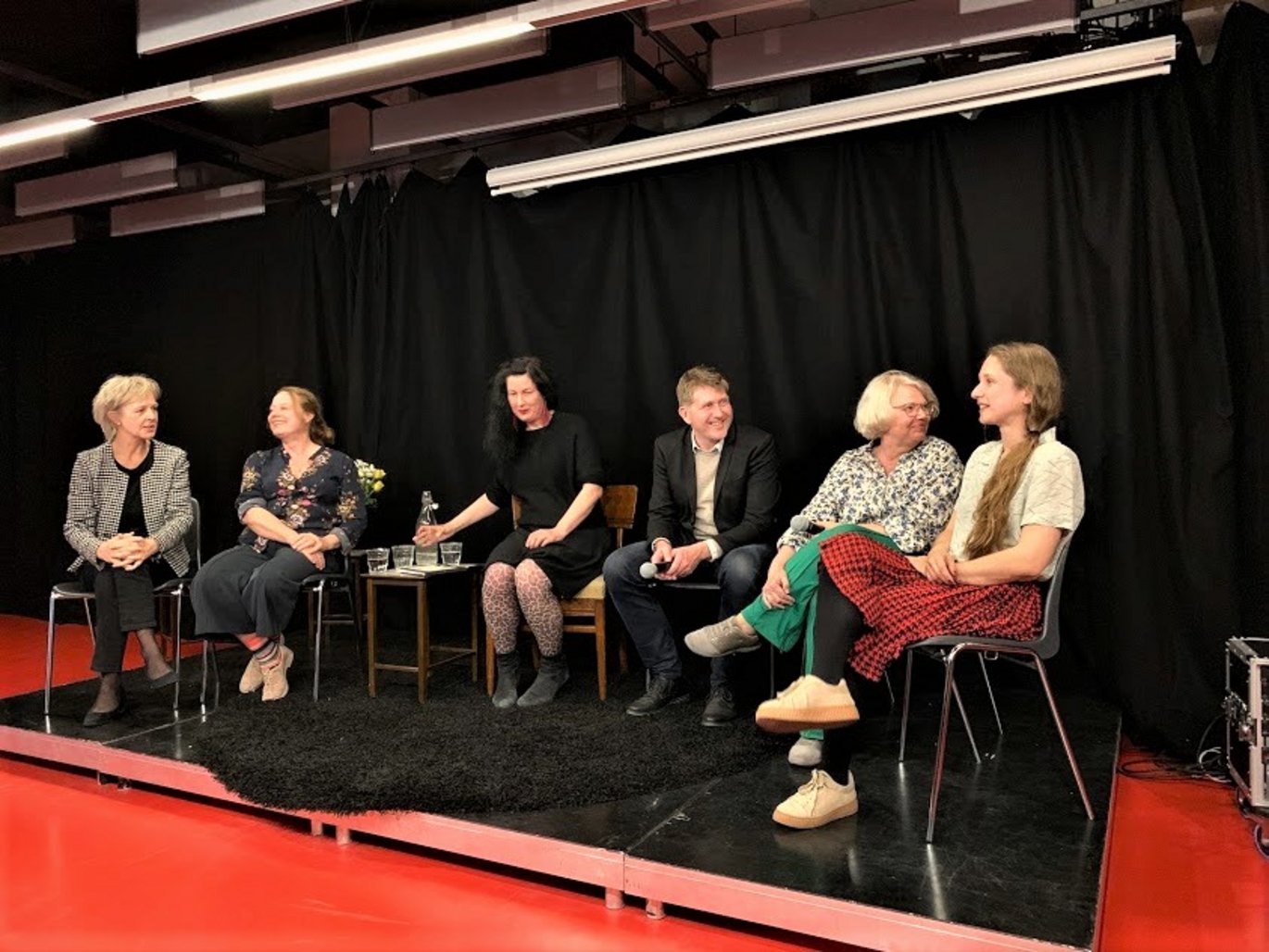Literature and the Posthuman
Three researchers and three Danish authors were gathered at Copenhagen’s Main Public Library to discuss the posthuman in writing and literature.

How do we become posthuman?
In the intimate and cosy atmosphere of the literary ‘salon’ at Copenhagen’s Main Public Library, anthropologist Cathrine Hasse opened the evening by introducing two very opposite views on what the posthuman is. On the one hand, the posthuman is seen as a technology driven transformation, where it becomes possible to create a whole new species of human beings by fusing machine and human consciousnes. In opposition to this, the posthuman is also seen in a more ecological and relational way, where consciousness and body cannot be separated, and humans only come into being through the entanglement with the material and social world around them.
The role of literature in imagining the future
Being in the literary setting of a library, and with three authors as part of the event, the researchers emphasized the role of literature in imagining the human future. Cathrine Hasse touched upon the fact, that scientists are inspired by science fiction in their work, and literary scholar Charlotte Engberg defined literature’s strength as the ability pose the question “What if?”. Also with the focus on literature and its imagined worlds, Mads Rosendahl Thomsen presented his new book Grænseløs? Menneske, teknologi og fremtid, which he has co-edited together with Dorthe Hedegaard Mikkelsen and Ditte Eberth Timmermann. The book is written for upper secondary education and gives lots of examples of literature concerned with themes like the posthuman and the Anthropocene.
Three Danish literary voices
“The human body obtains such a huge amount of DNA and bacteria from outside itself, that one could question, to what degree we even have a delimited ‘self’”. These were the words from author Ida Marie Hede, who read aloud from her book Bedårende. The entanglement between the human body and the microorganisms around us was also thematized by author Merete Pryds Helle. She read aloud from her book Det glade vanvid, and listeners could then follow the narrative, which was written from the perspective of a tiny fly. Ending the line of talks was Lone Hørslev, who read aloud from her collection of poems entitled “Dagene er data”. This reading posed questions about the collection of data, and what part of our lives that can be translated to, and understood solely through data, which sparked a lively conversation with the audience at the end.
